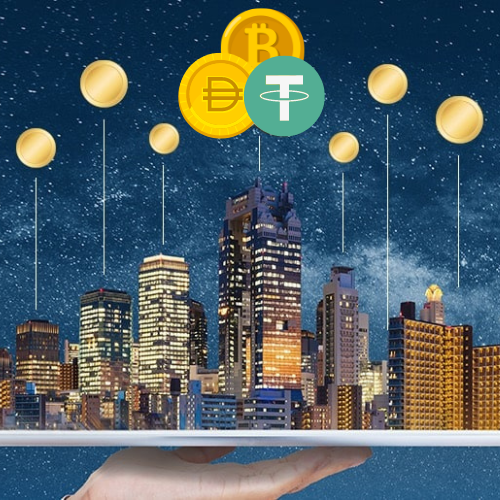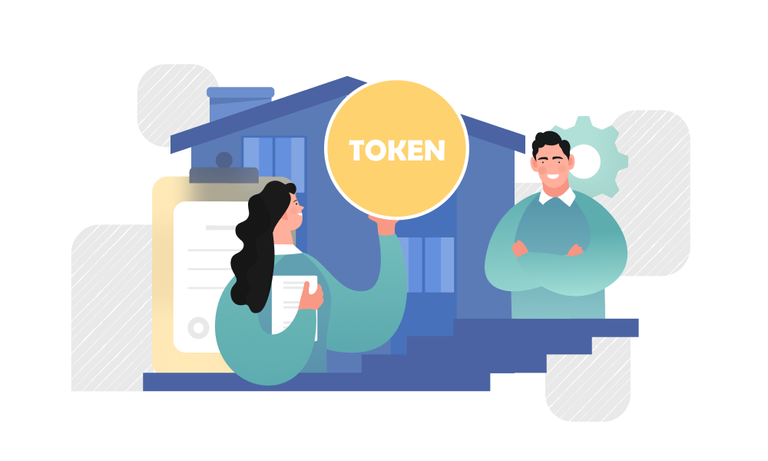Tokenized Real Estate: The Transitioning to Digital Real Estate Ownership
The real estate market is no different as the world grows more and more digital every day. Tokened real estate utilizes the newest technical developments, connecting them with the sector of real estate. This makes it conceivable for investors to acquire and sell fractions of ownership units using the digital tokens so changing how people invest on and run their properties. In this post, we will delve into the realm of tokenized real estate, look at what it is, the way it functions, its pros, the linked risks and the future it has been set for us.
Understanding Tokenized Real Estate
The phrase tokenized real estate represents the practice of turning tangible real estates into digital tokens on a distributed ledger system. Each of these tokens indicates the owner’s fractional interest in the property. Through these fractional ownerships, small time investors are offered with an option to invest in real estates without being burdened by excessive cost and other requirements.
Real Estate Tokenization: How it works
Real estate tokenization covers a number of critical stages:
Step 1: Identifying and Evaluating the Tokenized Real Estate: To begin with, it is vital to identify and value the real estate property that should be subjected to tokenization. This comprises examining its worth, predicted advantages, and amount of demand in the marketplace.
Step 2: Legal and Regulatory compliance connected with tokenizing Real Estate differs from the country to country and region. The provided should be made in compliance of relevant securities laws and regulations otherwise it will not comply with legal requirements or rather it will not be legally practicable.
Step 3: The writing of smart contracts: smart contracts are smart, self-enforcing agreements that are programmed directly into code. Such contracts enable for the automatic transfer and recording of ownership as well as distribution of tokens with high degrees of transparency and security.
Step 4: After putting in place a smart contract, the shares or fractional ownership rights to the property are tokenized and offered for sale.
Step 5: Investment and Trading: One can buy the tokens from multiple platforms or markets. The tokens are also tradable between investors and give liquidity in the real estate.
The Pros of Tokenizing Real Estate
Increased Liquidity: The liquidity feature is one of the primary benefits of tokenized real estate. Since traditional real estate capital takes a longer period of keeping, it may be difficult for investors to obtain their cash within a short time. On the other side, tokenized real estate enables investors to easily trade in tokens with higher liquidity.
Fractional Ownership: Through tokenization, fractional ownership is possible for investors to own a part of an expensive capital good while not buying the full asset. It encourages a democratic climate among persons looking for chances in real estate investing.
Diversification: Buying fractional shares of numerous properties might make investors lessen risks in a portfolio while improving its returns.
Global Accessibility: Unlike other sorts of physical assets, tokenized real estate extends beyond boundaries and makes it conceivable for international investors to take part in property transactions anywhere in the world independent of existing limits.
Transparency and Security: Transparency and security of operations is assured by the blockchain technology. fraud is decreased and openness is increased as property ownership data and investment details go into an unalterable record.
Potential Future of Real Estate Tokenization
Real estate tokenization will be taking a course into potential avenues, for example, the possibilities include:
Increased Market Penetration: If legislation continues to evolve and blockchain technology spreads, then tokenised real estate will become increasingly prevalent among diverse market participants and investors.
Enhanced asset administration: smart contract adoption will lead to better tokens for property administration, timely rental payments, proper operation of the objects, and others connected challenges.
Tokenization of real estate investment trusts (REITs): REITs can also be tokenized so as to enhance ease of transferable share purchase and sell which will increase profitability to the investor.
Understanding Risks in Tokenizing Real Estate
Tokened real estate may be incredibly promising yet at the same time it is worth addressing potential risks:
Regulatory Uncertainty: The regulation of tokenized assets is yet in its early beginnings. Market growth and stability can be negatively influenced by some changes in regulation as well as legal challenges.
Market Volatility: Just as any investment, tokenised real estate is vulnerable to volatility in markets, that may modify price of tokens and possibly influence investor’s earnings.
Security Concerns: While the blockchain technology is generally secure, the platforms and exchanges where tokenised trades in real estates occur may not be so safe and hence be exposed to cyber assaults.
Lack of Traditional Ownership Rights: However, tokenized ownership does not necessarily offer the same legal protections and rights afforded in a traditional property transaction hence the need for prudence.
How much does it cost to build a Tokenised Real Estate?
Tokenized actual state entails incurring expenses that could be high or low and this mostly depends on its location, size, and condition:
Property Valuation: The overall expenses of tokenization are specified by the value of the property supporting it. Such can apply to higher-value properties that have Greater associated costs.
Legal and Compliance Fees: The legal and regulatory concerns of tokenization could be addressed by lawyers and compliance consultants hence enhancing the overall cost.
Blockchain Platform and Smart contract Development: Implementation of smart contracts as well as their development cost, dependent on the platform chosen for such deployment.
Marketing and Platform expenses: The process of establishing up may also mean paying on marketing and platform expenses towards recruiting investors.
In conclusion
The tokenization of real estate as it applies to the field of property investing signals a paradigm revolution. It has various benefits compared with most of the real estate transactions since it leverages on blockchain technology, fractional ownership, and better liquidity. Tokenized real estate gives a huge promise for investor/owner involvement in order to boost the democratization of real estate investment as well as improved asset management. With developments in technology and legislation, the future for real estate tokenisation appears hopeful. While one needs to step very carefully in this regard, conduct thorough investigations and seek professional opinion, joining the arena of tokenized real estate is still a prospect worth considering.



https://inleo.io/threads/wealthwess/re-leo-curation-ub7sku3q
The rewards earned on this comment will go directly to the people ( wealthwess ) sharing the post on LeoThreads,LikeTu,dBuzz.
I completely agree with your post and find it to be entirely accurate. Thanks!
Through tokenization, high-value properties can be divided into digital tokens, allowing investors of various economic backgrounds to engage in previously out-of-reach real estate investments.
This democratizes access to property investments and could introduce greater transparency and efficiency in transactions, thanks to blockchain technology.